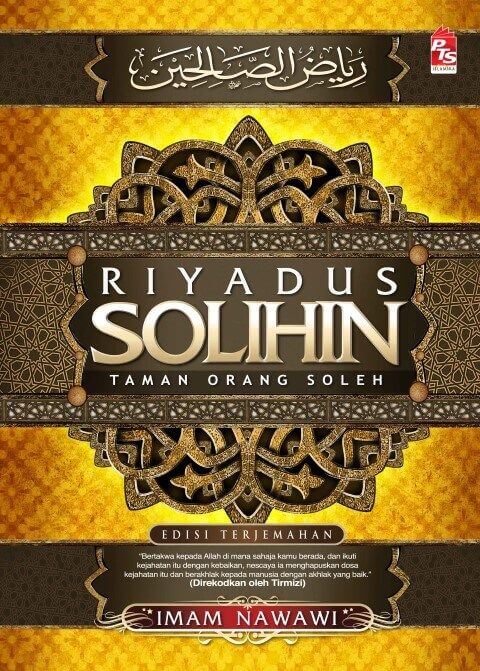By Anushia Kandasivam ;
LIBRARIES have
existed almost as long as civilisation. The first libraries in the world were
archives, consisting of published public records - commercial transactions and
inventories. Societies soon started keeping standardised practice texts for
scribes, copies of religious teachings, records of discoveries in science,
lists of words, and bilingual vocabularies.
A modern library
contains books of history, literature, science, philosophy and everything in
between, including fiction. A good one will contain public records, sound and
video archives, and electronic documents. A great one will run reading and
learning programmes for the public, helping to guide its members on their quest
for knowledge.
The first
experience with libraries that most children have is in school. The function of
libraries is such that even a child in kindergarten will be able to gain from
using a library. School libraries perform three broad functions. As a fiction
resource, including the provision of fiction books supported by professionals,
a library can capture the child's interest so that reading becomes a positive
and enjoyable experience. A library should provide a differentiated non-fiction
collection that supports all aspects of the curriculum with structured support
mechanisms that facilitate independent learning. Finally, there should be
general interest resources for children wanting to spend purposeful
non-directed time in a safe and welcoming space. Resources in this category do
not need to focus on curriculum.
In today's wired
world, though, almost any information is just a click away. Wikipedia knows
everything, children are able to google or bing information, and the fact that
these names can be used as verbs speaks to the ubiquitous nature of these
search engines. Many people suggest that libraries are becoming outmoded by
electronic resources and all the information available on the Internet.
But the
complexities of people's exposure to this information explosion make both
physical and online centres managed by information professionals ever more
important for children, especially as they acquire independent learning skills
and knowledge navigation, says Robert George, chief librarian at The Alice
Smith School. Modern librarians are information professionals.
It is school
libraries working with the school's teaching staff that will transform today's
children into the information- and digital-literate adults of the future.
Libraries have never been more crucial than they are now.
Most Malaysian
adults have experience with libraries, if only when they were in school. It is
safe to say that many take with them a neutral feeling about libraries; chances
are the school library was just a place to sit in during a free period, with a
few resources that a child may or may not use, and a small and cheerless
collection of fiction.
A modern school
library should be the first place a child goes to gather information - a
welcoming 'open all hours' operation that embraces the whole school community.
Schools like Alice Smith are making an increasing investment in libraries,
recognising their importance as a focal point in an educational institution.
Their primary libraries are in three separate spaces that divide roughly as
early years, lower primary and upper primary. Each of the spaces supports both
fiction and non-fiction resource.
eBooks and
electronic resources are inevitably an increasing consideration in libraries in
many schools, and not just for older students. Children as young as four are
able to use computers nowadays. Alice Smith, for example, looks to support
modern technologies and integrate them where possible with their Virtual
Learning Environment platform, which is accessible to all students. Despite the
prevalence of online resources, though, most school libraries' fiction
provision will continue to be dominated by hard copy books due to expense and
the lack of uniformity in electronic reader platforms. Also, the feeling of a
book in the hand is still special for most people.
It is
undoubtedly important to encourage a strong reading culture from an early age.
Much of this love of reading is ideally inculcated through school mechanisms,
but the impact will inevitably be greater where it overlaps with families who
value literature.
For a school's
library to be successful, there need to be mechanisms that get exactly the
right book into a child's hands at the right time so that their enthusiasm is
maintained. Another significant challenge is to try to avoid the children
sticking too much to a single genre. Scheduling weekly library visits during
the teaching day, as done in Alice Smith, is a good way of reaching this goal.
Here, opportunities are also provided for children to borrow books at break,
lunch and after school with their parents. One of the targets of Alice Smith's
library lessons is to encourage diversity both in terms of genre and balance
between modern authors and the classics.
Maintaining an
attractive and sophisticated library whether in a school or for the public is
tough. They are expensive to keep in this condition, but unless they are
attractive and sophisticated they will not be sufficiently patronised - a
catch-22 situation. Malaysia's neighbour Singapore has already blazed a path in
this direction, becoming one of the world leaders with the National Library
Board's modern, well-stocked libraries. Singapore, of course, has a small
high-density population and uses English as its national language, making this
task considerably easier.
Malaysia's
multicultural nature creates complex language issues, says George. From a
library perspective it would seem that any holistic library would need to
support all main national language strands - Bahasa Malaysia, Mandarin, Tamil
and English. Stocking publications in English would certainly improve
Malaysians' grasp of sophisticated English. In fact, as reading improves
language skills, a child that reads extensively in any language will benefit.
Nowadays books
face serious competition from 21st century pastimes. A library thus has the
responsibility of ensuring that each child gets a positive experience with a
book so that they are able to value what libraries can offer them throughout their
school careers, and develop an enthusiastic lifelong reading habit. The
acquisition of knowledge is one of the noblest pursuits of mankind; a library
is the best place for a child to begin this journey.
Great libraries
across the world
ANCIENT
The Royal
Library of Alexandria
Also known as
the Ancient library of Alexandria, this was the largest and most significant
great library in the ancient world. It was charged by its royal patron to
collect all the world's knowledge and is the first known library to gather a
serious collection of books from foreign countries.
It was so
well-funded by royal mandate that librarians were able to travel to book fares
in Rhodes (Italy) and Athens (Greece). It also had a rather aggressive policy
of taking books off every ship that came into the port, making copies of them
and giving the copies to the owners while retaining the originals.
Containing works
from the past as well as contemporary works in subjects such as mathematics,
physics, astronomy, and natural sciences amongst others, the library was host
to many international scholars and part of the Musaeum of Alexandria, a famed
research institution.
Tragically, the
library was accidentally burned down in 48 BC by Julius Caesar, who had set
fire to his own ships while trying to fight back a march on the city.
CURRENT
The British
Library
The national
library of Britain, the British Library contains one of the largest collections
of books and other materials in the world. Created in 1973, it turns 37 today.
Despite its young age, it contains comprehensive historical collections, the
core of which is made up of the foundation collections, donations and
acquisitions from the 18th century that include manuscripts from King George
III.
The British
Library benefits from the practice of legal deposit, a principle that
automatically entitles it to receive a free copy of every book and electronic
document published in Britain and every book published in the Republic of
Ireland. A significant part of the library's collections is the Asia, Pacific
and Africa Collections, which include the India Office Records, a large
collection of documents relating to the administration of India spanning the
period of British rule there.
The British
Library Sound Archive contains more than a million discs and 185,000 tapes from
all over the world, covering the entire range of recorded sound stretching back
more than 100 years, from music, literature and drama to oral history and
wildlife sounds.
MODERN (DIGITAL)
National Diet
Library
The only
national library in Japan, the National Diet Library was established 1948 as a
research facility for members of the Diet of Japan (Japan's legislature). It
uses the practice of legal deposit, collecting copies of all publications in
Japan. Because of its purpose as a research library, it also contains an
extensive collection of materials in foreign languages.
The library
provides exhaustive online databases accessible from a detailed website in both
Japanese and English. The National Diet Library Online Public Access Catalogue
allows users to search the library's entire collection remotely, obtain certain
materials through interlibrary loan and provides a reproduction service for
overseas scholars. The library's entire collection of Meiji era (1868-1912)
books, about 60,000 volumes, has been digitised and the database also contains
images of these materials. Its rare book collection includes images from 37,000
illustrated books published before the Edo Period (1603-1868).
PROGRAMMES
Queens Library
The public
library for the Borough of Queens in New York, the Queens Library has become
one of the largest public library systems in the US. It is the second largest
in the country in terms of the size of its collection. It serves more than 2.2
million people, including a large immigrant population.
Queens Library
has a myriad of programmes aimed at children and teens, and even some for
adults. The most popular is BOOST, the Best Out Of School Time programme, which
provides homework materials and tutors for school children. Teens are able to
tutor younger children, and may even get any fines on their library card waived
for their service.
There are
various learning and play groups for young children, including bilingual ones
that include caregivers and family. Programmes aimed at adults include language
classes and workshops, arts and crafts activities, parenting workshops that
target specific needs (such as Parenting Using Sign Language), and even yoga.

















No comments :
Post a Comment